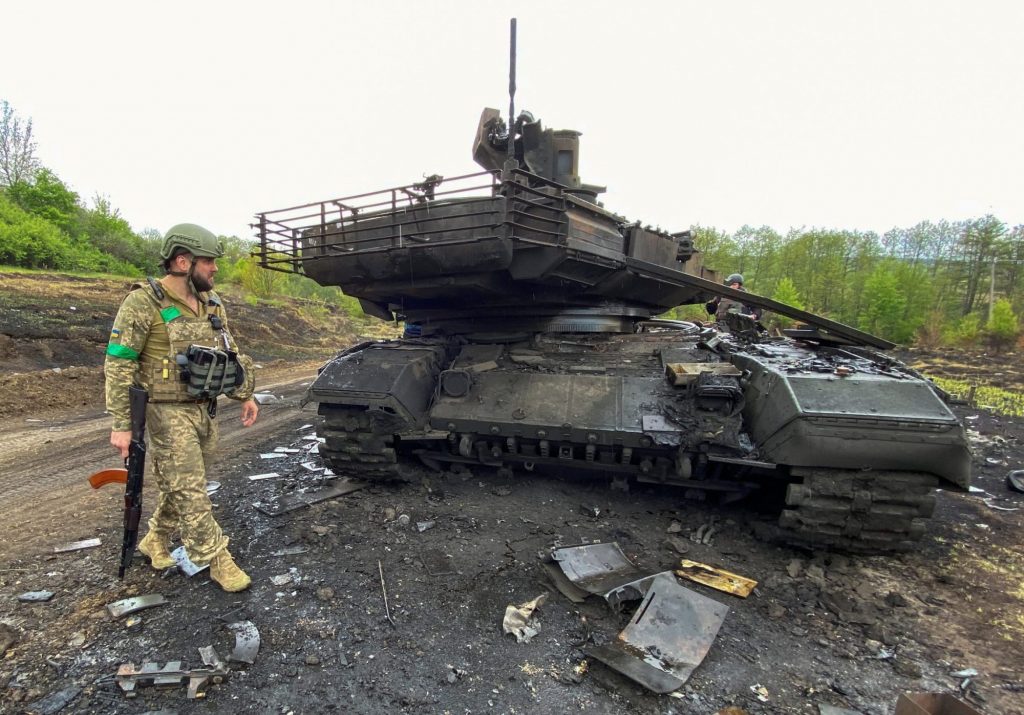by
Edward Luttwak*

Why do Russia’s wars always start with disaster? The answer is straightforward: because the autocrats who rule Russia — be they Tsars (with the exception of Napoleon’s nemesis Alexander I), Joseph Stalin or Vladimir Putin — appoint obedient toadies sadly lacking in military talent to command their forces.
And none is more out-of-his-depth than Sergei Shoigu, Putin’s minister of defense. Shoigu studied engineering and skipped military service altogether. Nonetheless, he was rapidly promoted all the way to full general and then minister of defense by Putin because of his uncritical loyalty, which was further guaranteed by his obscure Tuvan origins that gave him no Muscovite power base to threaten the Kremlin (his birthplace is much closer to Beijing than to Moscow).
As for Putin’s chief of staff, Valery Gerasimov, his incompetence is of a very modern sort, indeed postmodern. Just like some telegenic US generals with PhDs but no actual hands-on combat experience, Gerasimov preached “post-kinetic” warfare, in which cyber war, “information war” or “hybrid war” replaced old-fashioned infantry, armor and artillery combat.
It was Gerasimov who cooked up the brilliant plan that so convinced Putin — as well as the CIA, the US director of national intelligence and their fashionably post-kinetic military advisors — that the air-landed seizure of the Antonov field on the first night of the war would open the door to Kyiv. Absent post-kinetic delusions, the overhead photography alone should have sufficed to tell US intelligence that the Russians would fail: they were invading Europe’s largest country with an army of less than 140,000 troops, as opposed to the 800,000 [500,000? MvC] who invaded Czechoslovakia in 1968, a country one-fifth the size of Ukraine and with one-quarter of the population. And, of course, as perfect yes-men, Shoigu and Gerasimov never told Putin that, if he wanted to invade Ukraine, he first had to declare war and mobilize the Russian army.
Even so, what happened next came as a great surprise. The failure of Gerasimov’s dazzling plan and the ignominious retreat from the edges of Kyiv and Kharkiv should have been followed by the usual Russian remedy but nothing happened. In 1941, when the German army easily defeated the Red Army to swiftly conquer Ukraine and start its march to Moscow, Stalin’s favorite toady Marshal Grigory Kulik was dismissed and eventually shot. Others were shot right away, and were replaced by officers previously set aside because they were not yes-men. Some were rescued from prison to take up command at the front. (Konstantin Rokossovsky, who had been arrested, badly tortured and locked up as a traitor, was patched up and given an entire army to lead; he would finish the war a victorious marshal.)
This is what Yevgeny Prigozhin expected from Putin: the swift dismissal of Shoigu and Gerasimov and their replacement by officers old-fashioned enough to have “kinetic” skills, and who would focus on building up effective infantry, armor and artillery units to capture Kyiv and conquer Ukraine. Instead, with Gerasimov and Shoigu inexplicably still in charge, the Russians continued to rely on “information warfare” to demoralize the Ukrainians into surrender, with non-stop propaganda and terror air attacks against random buildings in Kyiv and most other cities.
Not only did this “non-precision” bombing fail to hurt morale — it never does — but it was also hugely wasteful. As Russia’s rockets and ground-to-ground missiles started to run out, they turned to expensive air-to-ground missiles meant for high-value targets, such as air-base installations or at least battle tanks. But their warheads were too small to make much of an impression in built-up cities.
This is when Prigozhin, with his mercenaries, started his own land-combat campaign, contracted as always by the Russian government, this time to fight in Ukraine rather than in Libya or Mali or ex-French Congo. But, a few months later, he very soon found himself competing for manpower with contract units that were raised by the Russian army itself. These official units offered good pay to ex-servicemen and therefore competed with Wagner — but without its cadre of experienced mercenaries, they achieved very little.
All of which was frustrating for Prigozhin, who started to voice his complaints increasingly loudly, eventually asking why Shoigu and Gerasimov were still in-command when they should have been shot for incompetence, or at least kicked out of their jobs. Inexplicably — not only to him — Putin failed to take advantage of his dictatorial power to get rid of the pair of failures.
It was then that Shoigu and Gerasimov hit back by denying artillery shells and small-arms ammunition to Wagner, even when it was Wagner that was doing all the fighting in Bakhmut. Ultimately, it was a struggle between a very talented maverick — Prigozhin had started as a caterer — and the dull bureaucrat Shoigu and too-clever-by-half Gerasimov.
Stalin greatly valued such competition; even at the very end in 1945, he made Marshals Georgy Zhukov and Ivan Konev race one another to reach the center of Berlin with their separate armies. But Putin is no Stalin. He is still, after everything, the bureaucrat he has always been. He would never have dreamed of promoting the talented Prigozhin to run his war, in the way that Lincoln promoted the hard-drinking Grant.
In the coming days, Prigozhin will be captured or killed. Any trial would compound Putin’s colossal embarrassment. The reason he must fail is that, in Russia, he falls into a specific category: like Yemelyan Pugachev, who rebelled against Catherine the Great in 1773, Prigozhin has no power base in Moscow, let alone in the military and security establishment he has so savagely ridiculed.
Yet there is also a lesson in this for Putin: if he does not fire Shoigu and Gerasimov and start anew with leaders plucked from the smart younger officers who have emerged in recent fighting, he will have to abandon the war that has become Russia’s misfortune.
- Edward Luttwak is a Maryland based American strategist with countless books, articles and consultancies to back him up. The present article was originally published in UnHerd.com and is here reproduced with the author’s permission.
 A good friend has suggested that I write down the shortest possible summary of everything I’ve learnt, or believe I’ve learnt, from my twenty-something years’ worth of researching and writing about, women, feminism, and the relationship between the sexes.
A good friend has suggested that I write down the shortest possible summary of everything I’ve learnt, or believe I’ve learnt, from my twenty-something years’ worth of researching and writing about, women, feminism, and the relationship between the sexes.


